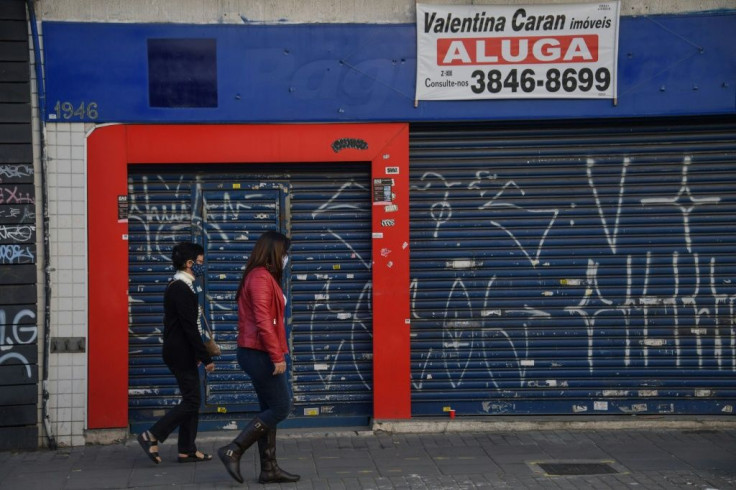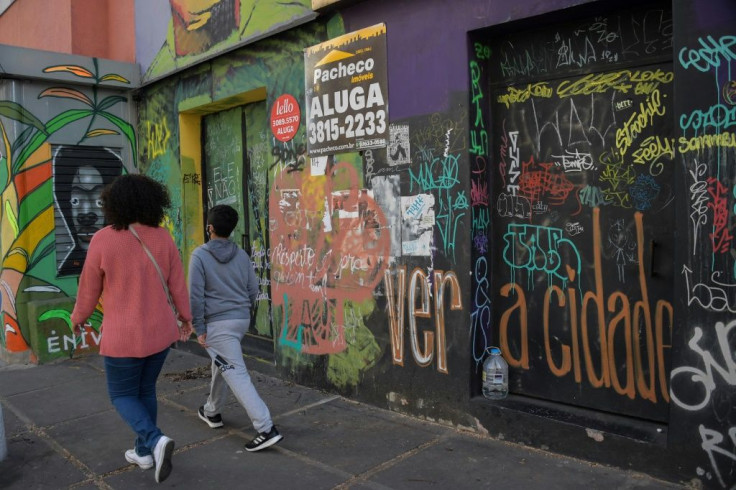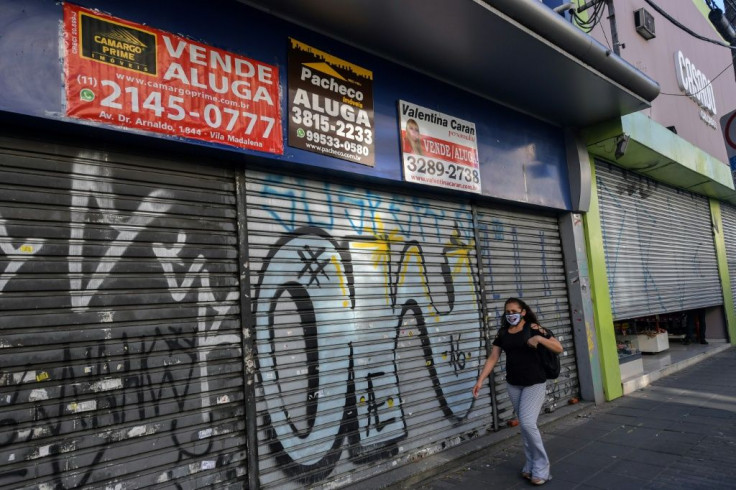Sao Paulo Reopens Stores, But Many Have Closed For Good

Three months ago, Sao Paulo closed all "non-essential" businesses as the coronavirus pandemic started ravaging Brazil's economic capital. Now they are allowed to open again, but many shutters are still closed, and likely to stay that way.
Sao Paulo, a sprawling concrete jungle of 12 million people, is home to 40 percent of the small- and medium-size businesses in Brazil.
Many did not have enough cash on hand to outlast the shut-down, which started on March 24.
On the streets of Vila Madalena, usually a thriving district known for its restaurants, bars and cafes, long stretches of shuttered storefronts show the economic havoc the pandemic has wrought on Brazil, which has the second-highest number of infections and deaths in the world, after the United States.
"For sale" and "for rent" signs dot the streets in this neighborhood of bars, night clubs, tattoo parlors, hair salons, nail salons....
They are the kind of businesses deemed "non-essential" by the authorities, and also the kind impossible to shift online, leaving them no choice but to close up shop.
Now, after three months with no revenue, many owners have had to close for good.
Graziela Magliano, 47, said she quickly realized it would be impossible to keep paying her three employees and the 8,000-real ($1,500) monthly rent on her beauty salon.

After seven years in business, she made the difficult decision to close.
"I was scared, because even after the initial crisis is over, I don't know what will become of my industry. It's a profession where we touch people a lot," she told AFP.
"I didn't even try to apply for a loan. I didn't want to come out of this pandemic under a pile of debt."

Sao Paulo state is the epicenter of the pandemic in Latin America, with more than 11,000 deaths so far -- the heaviest toll in Brazil.
And although the authorities began tentatively reopening the economy last week, the virus has still not been brought under control here.
"We still don't know how many businesses will remain closed definitively, but we expect it to be around 20 percent," said Carlos Melles, president of the Brazilian small business association, SEBRAE.
That raises questions about what life in the vibrant city at the heart of Latin America's biggest economy will look like in the years to come.
"Entrepreneurs will have to reinvent themselves. Jobs will be in the service sector, such as assisting the elderly, for example. We are also seeing an increase in online sales," said Melles.
Many business owners fear the new normal will be one of far slower sales.
Raimundo Jeronimo, owner of a traditional Brazilian restaurant, said he was now making just 15 percent of the 1,500 to 2,000 reals a day he earned before crisis.
"It's enough to cover some of my bills. I've managed to pay the rent so far, because the owner gave me a 50-percent discount," he said.
"But if this goes on, I don't know if I'll make it financially."
At the empty snack bar next door, Federico Prim said he was trying to stay optimistic.
"Let's hope street bars, shared spaces, the things that gave Sao Paulo its identity, will bounce back," he said.
"But it's going to take time."
© Copyright AFP 2024. All rights reserved.





















